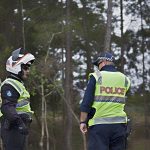Dozens of NSW Police Officers Charged with Assault and Sexual Offences

Police offers swear an oath to uphold and enforce the law, but what happens when officers themselves are themselves charged with violent of sexual offences?
It has been reported that since October 2016, 30 New South Wales police officers have been charged with offences ranging from reckless damage and common assault through to child sex offences.
Domestic violence-related charges have been laid against 17 officers in our state since February 2017 – ranging from stalking and intimidation, to assault occasioning bodily harm, choking, and sexual assault.
While the figures currently show the number and type of charges laid, they do not reveal the outcome of the allegations.
NSW Police Minister Troy Grant has called the figures, “very disturbing,” adding that the cases are in the hands of the courts to determine.
However, it is a positive indication that the officer are being prosecuted, unlike many others who are cleared of any wrongdoing after ‘internal investigations’, despite the evidence appearing to be strong.
Victims reluctant to report police officers
There are specific concerns that victims whose perpetrators have personal connections to the police force are reluctant to report crimes, and that when reported, police often fail to investigate let alone discipline or charge the culprits.
The problem can be exacerbated in regional areas where there are limited options for a complaint, and the mentality of protecting ones own can be pervasive.
That said, nine of the 17 officers charged with domestic violence-related offences were based in regional areas.
The other issue in remote and regional areas is the lack of support services – sometimes people need to travel to get support, or to file a complaint at a police station where the alleged perpetrator is less well known.
Of the police officers charged with domestic violence offences across the state, just one was female.
Domestic Violence escalates during holiday period
The end of year corresponds with an increase in domestic violence offences, as mixing alcohol with financial pressures and unrealistic expectations can lead to violence.
Domestic violence helplines are expecting at least a 20 percent rise in calls during the Christmas-New Year’s break.
The New South Wales Bureau of Crime Statistics and Research (BOCSAR) statistics show that reports of domestic violence jump 25 per cent over the festive season, and at a time when victims need support the most, many services shut down for the holiday period.
Domestic Violence leave for victims
Earlier this year, the Government passed a guaranteed entitlement of five days’ unpaid family and domestic violence leave incorporating it into the National Employment Standards for the first time.
Under the entitlement, family and domestic violence means “violent, threatening or other abusive behaviour by an employee’s family member that seeks to coerce or control the employee or causes them harm or fear”.
Employees can take leave if they need to deal with the impact of family and domestic violence and it is impractical to do so outside their ordinary hours of work.
It’s been hailed as a great step forward for victims of Domestic Violence, but there are still strong calls for Australia to follow the New Zealand Government’s introduction of 10 days paid leave.
ACT public servants to receive DV training
Recently the ACT State Government announced that family violence recognition training will be rolled out to all ACT public servants from next year.
From Administration staff to bus drivers, the course will be rolled out in an effort to help these workers to be better trained in noticing the hallmarks of domestic violence, including little-understood controlling and coercive conduct, how to respond to victims with empathy, and where to find them help.
Frontline health workers, including paramedics, will receive more advanced training. The ACT government is offering the programme, in the hope that as a result, the states 21,000 employees will have ‘come capacity to respond in some way appropriately’, and hopefully make a bigger impact on the current domestic violence crisis than simply ‘raising awareness’.
Domestic Violence continues to be a devastating social issue in Australia. According to the Australian Institute of Criminology, on average, one woman a week is killed by her current or former partner.







